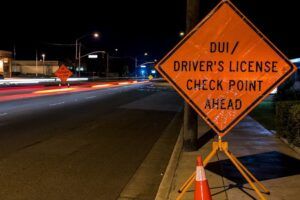 Checkpoints are one of the most commonly used ways police stop and catch drunk drivers, and although they can’t set up a checkpoint and stop every drunk driver on the roads today, no one can deny it’s a method that works and one that most people support. But one lawyer in Florida has questions about whether checkpoints violate individuals’ constitutional rights, and he’s causing quite a stir amongst law enforcement in the state.
Checkpoints are one of the most commonly used ways police stop and catch drunk drivers, and although they can’t set up a checkpoint and stop every drunk driver on the roads today, no one can deny it’s a method that works and one that most people support. But one lawyer in Florida has questions about whether checkpoints violate individuals’ constitutional rights, and he’s causing quite a stir amongst law enforcement in the state.
Warren Redlich, a South Florida attorney, has a popular website detailing how to avoid police interaction when stopped at a checkpoint. Instead of rolling down your window and being assessed by the police officer when stopped, he recommends Florida residents simply place their driver’s license, registration, and a note stating they refuse a search, won’t speak to police, and would like to obtain the services of a lawyer.
Is this wise advice for drivers in Florida? Law enforcement in the state say no. Their view is that they have to speak to people in order to confirm whether or not someone has been drinking and driving, and if everyone simply placed their license and insurance on the dash and refused to interact, a lot of drunk drivers would slip through the cracks. The law also upholds the police officer’s view – a 1990 U.S. Supreme Court ruling says random checkpoints don’t violate constitutional rights and it’s not considered unreasonable search and seizure.
The standard procedure at a checkpoint is to speak to the police, perform field sobriety tests if they suspect you of drunk driving, and submit to a breathalyzer for concrete proof of intoxication level. If you’re driving sober, that shouldn’t be an unreasonable process to go through.
The real problem will begin if you’ve decided to drive drunk, and if you’re stopped at a checkpoint and charged with driving under the influence (DUI) you’ll receive possible jail time, loss of your driver’s license for 180 days, fines up to $500, and the possibility of an ignition interlock installation if deemed appropriate by the judge or if your blood alcohol concentration (BAC) is .15 or over. As of 2014, judges can also order ignition interlocks for first time offenders with a BAC of .08 to .14 in lieu of a 10-day vehicle impoundment.
Despite the popularity of Redlich’s website, there is no proof that his method would stand up if challenged in a court of law. No matter what your opinion on checkpoints, if you drive safe and sober in Florida, you should have no problem stopping and interacting with officers when they ask you to.